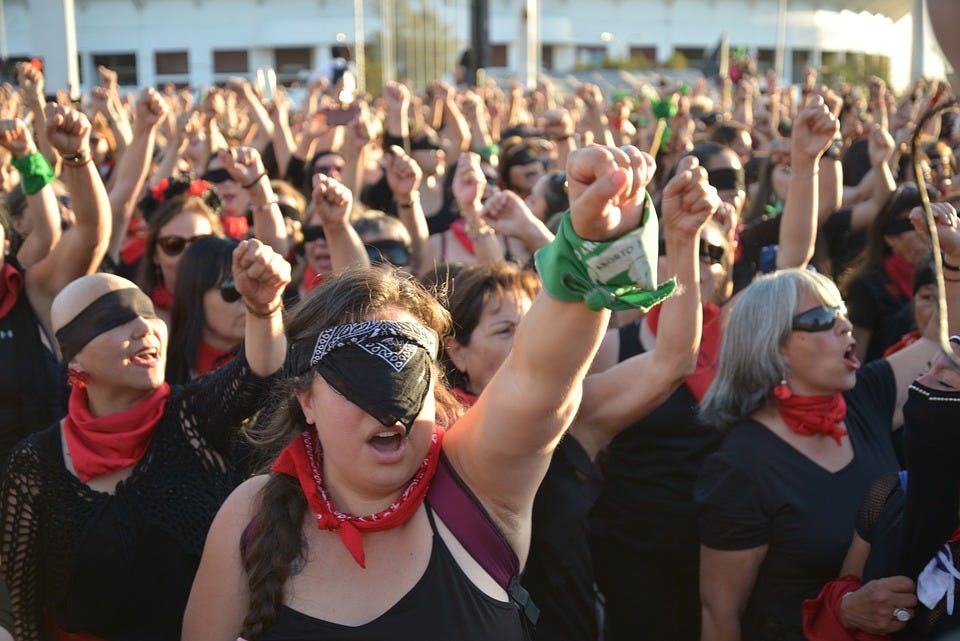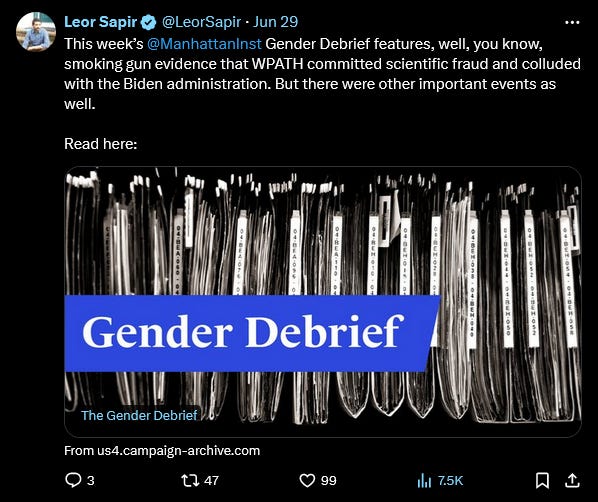E-Pluribus | July 1, 2024
Declining community life fuels illiberalism; the roots of progressive radicalism; Supreme Court: social media moderation is speech
A round-up of the latest and best musings on the rise of illiberalism in the public discourse:
Reality’s Last Stand: Is the Decline in Community Life Driving A Rising Demand For Illiberalism?
There’s a troubling correlation between fraying community bonds—once fostered by activities like church attendance—and growing disillusionment with liberalism. Writing at Reality’s Last Stand, Julian Adorney, Mark Johnson and Geoff Laughton make the case that declining community life fuels a knee-jerk opposition to the liberal social order, which many people blame for leaving them lonely and disconnected:
The connection between social isolation and political illiberalism isn’t new; it has been well-established by social psychologists. As Haidt writes in The Righteous Mind, social connectedness serves as a bulwark against totalitarianism.
“If people can’t satisfy their need for deep connection in other ways, they’ll be more receptive to a smooth-talking leader who urges them to renounce their lives of ‘selfish momentary pleasure’ and follow him onward to ‘that purely spiritual existence’ in which their value as human beings consists.”
In contrast, “a nation that is full of hives [Haidt’s term for civic associations] is a nation of happy and satisfied people. It’s not a very promising target for takeover by a demagogue offering people meaning in exchange for their souls.”
Putnam argues that social isolation may fuel political extremism for a different but related reason: it puts us into echo chambers, which moves us politically towards the fringe.
“When people lack connections to others, they are unable to test the veracity of their own views, whether in the give-and-take of casual conversation or in more formal deliberation. Without such an opportunity, people are more likely to be swayed by their worst impulses. It is no coincidence that random acts of violence, such as the 1999 spate of schoolyard shootings, tend to be committed by people identified, after the fact, as ‘loners.’”
In other words, when we feel lonely, adrift, and unhappy, we may be more susceptible to the appeals of extremists on both the left and the right who promise community and utopia contingent on our willingness to overturn the existing social order.
Jonathan Kay: The Roots of Progressive Radicalism: Nellie Bowles vs. Musa al-Gharbi
At Quillette, Jonathan Kay examines two competing explanations for why growing factionalism is tearing apart progressive institutions from within. He says these dueling hypotheses actually explain the situation better together than either considered in isolation:
The question of why so many left-wing cultural, academic, activist, and political institutions are now being upended in this way is addressed in two widely discussed new books. Taken together, they offer a fuller explanation than either writer—one a journalist, the other an academic—is professionally equipped to provide.
The first, Morning After the Revolution: Dispatches from the Wrong Side of History, is by Nellie Bowles, a former New York Times reporter who quit the Grey Lady in 2021 to join her wife Bari Weiss (also formerly of the Times) in creating The Free Press.
…
Bowles hasn’t written one of those tiresome manifestos in which a lifelong leftist suddenly describes why she’s become a born-again conservative (or vice versa). She makes it clear that her views have remained broadly liberal, in the way that word would have been understood when she began work at the Times (ancient times, I realise, but still).
And to such extent as she offers any overarching theory for young progressives’ enlistment in illiberal political cults, it comes in the form of (admittedly backhanded) praise: She likens their vanguard to utopians who truly do seek a better world, even if their convictions inevitably express themselves as intolerance and fanaticism:
…
Bowles has no objection to this vision of a perfect society. Indeed, she calls it ‘beautiful.’ She simply believes that its viability should be evaluated through rigorous investigation—a process that, not so long ago, would have been known to her critics in the Times newsroom simply as sound reporting.
Like Nellie Bowles, Musa al-Gharbi is a young American liberal dedicated to the task of understanding the illiberal tendencies that now dominate much of the progressive landscape. But he comes to the project from a very different background, which explains why he’s produced a very different book.
…
Far from offering a culture-war call to arms, Al-Gharbi strikes a moderate, almost weary tone. He argues that there’s nothing particularly special or alarming about this moment: Patterns of political radicalisation among elites are recurrent in the post-industrial history of the western world, and often track periods of elite overproduction (i.e., underemployment among the well-educated and -connected).
Referencing the prescient work of ecologist-turned-historian Peter Turchin, he argues that American society has been going through just such a phase: The United States simply has too many people ‘who feel entitled to high status and high incomes relative to the capacity of [their] society to actually absorb [such] elite aspirants into the power structure.’
As a result, they find alternative means to advance their social standing, often by presenting themselves as vital (and even heroic) allies of marginalised populations, locked arm-in-arm as they march off to (metaphorically) confront (or even overthrow) society’s racist, colonial, transphobic etc. overlords.
Elizabeth Nolan Brown: Social Media Moderation Is Speech, Says Supreme Court
The US Supreme Court today vacated NetChoice v. Paxton and Moody v. NetChoice, two cases examining how individual states may regulate the moderation policies of tech companies, which are poised to have major First Amendment implications.
While the Court wasn’t as aggressive as it could have been in repudiating the state laws in question, Elizabeth Nolan Brown at Reason argues that the Justices nevertheless came down on the right side of the dispute:
The Supreme Court ruled today in two cases that could have a major impact on how social media platforms operate and how the government can interfere on behalf of political speech on these platforms.
The cases (NetChoice v. Paxton and Moody v. NetChoice) were brought by two tech industry trade groups—NetChoice and the Computer & Communications Industry Association—that opposed social media moderation laws in Florida and Texas.
The Court unanimously agreed to vacate decisions by the 11th Circuit and the 5th Circuit—which upheld a preliminary injunction on the Florida law (finding it likely did violate the First Amendment) and reversed a preliminary injunction on the Texas law (finding it did not likely violate the First Amendment), respectively—and to remand both cases for further review. While there's a lot of analysis left to be done, that analysis must be ‘consistent with the First Amendment, which does not go on leave when social media are involved,’ the court held.
It's not quite the total blow to these laws that many free speech advocates (including myself) were hoping for. But the court did admonish the 5th Circuit for its flawed interpretation of the First Amendment. And the Supreme Court's own analysis here backs the tech groups' position that social media platforms are engaged in protected expression when they decide what content to allow and how to present it.
…
The court points out that the Texas and Florida laws ‘limit the platforms' capacity to engage in content moderation—to filter, prioritize, and label the varied messages, videos, and other content their users wish to post,’ and that they ‘require a platform to provide an individualized explanation to a user if it removes or alters her posts.’ NetChoice ‘challenged both laws on their face—as a whole, rather than as to particular applications.’
…
While the Florida and Texas social media laws haven't been wholly defeated, the Supreme Court's ruling here is still good news for defenders of free speech online. (NetChoice is certainly taking it as a win.) The court leaves no question that at least parts of these laws infringe our First Amendment rights.
The full article is here.
Around Twitter (X)
Colin Wright highlights a new study he calls “the most jargony woke word salad ever.” After reading the paper’s abstract several times, we still have no idea what the authors are getting at.
Leor Sapir doesn’t mince words here. Youth transgender medicine, he says, is mired in scientific fraud:
Finally, Jesse Singal, tongue firmly in cheek, highlights a critical problem with social media: popular commentators who comment on issues they clearly don’t understand:









